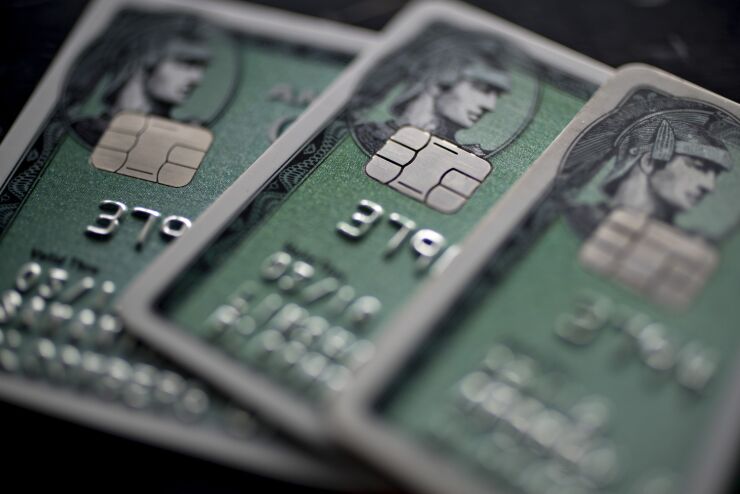Credit card issuers have to strike a delicate balance when offering cash back on spending categories where rising prices could cause their reward costs to skyrocket.
The solution may be to eschew the idea of paying rewards as pure cash or statement credits, instead going to a system where consumers are asked to exchange points for cash — and the point values can be adjusted on the fly.
“Points values for merchandise, travel and gift card redemptions can be adjusted to manage expense, so we may see more issuers promote points and not specify a specific percentage of the transaction amount,” said David Shipper, a strategic advisor in Aite-Novarica’s retail banking and payments practice.
The “all items index” for consumer prices rose 9.1% in the 12 months ended June 30, the Labor Department reported this week. This raises the stakes for issuers who must hand over accordingly higher cash rewards to consumers.
But as some issuers get more cautious, others are getting more aggressive. American Express has added online retailers to the list of purchases alongside gasoline and grocery merchants where consumers can earn the most cash back, while bumping its cash-back rewards on those everyday items from 2% to 3%.
The tweak to Amex’s Blue Cash Everyday credit card takes surgical aim at other large issuers’ cash-back card rewards programs with one of the most lucrative across-the-board offers on everyday purchases for a no-annual-fee card, intensifying competition among issuers who are

By throwing in a couple of other modest perks — $7 monthly statement credits for streaming Disney channels and another $15 for Home Chef meal-kit delivery — Amex has managed to up the ante without dramatically increasing its costs at a time when many issuers are close to maxing out their credit card rewards in a volatile economy, observers say.
“We have observed a convergence and leveling-off of rewards levels and structures, because most issuers are at the limit of what they can offer to hit their desired return hurdles,” said Davin Chow, partner at the global consulting firm Oliver Wyman specializing in payments strategy.
Larger community banks and credit unions also became more generous with rewards programs for everyday purchases over the last year, but competition is now becoming more incremental and strategic, Chow said.
"The largest issuers have made some adjustments, but not at the pace of what we saw a few years ago," Chow said, referring to the way many no-annual-fee cards routinely offer
Discover Financial Services could get hit particularly hard if prices continue to rise. Its Discover it Cash Back no-fee card provides not just 5% cash back on a user’s top-spending category each quarter, but matches each new customer’s total cash-back rewards at the end of the year, with no limit.
To lock consumers into using its cash-back credit card for everyday purchases this summer, Mountain America Credit Union in Sandy, Utah, is running a promotion that gives randomly selected participating users a chance to win $500 each week as a statement credit. Members of the $14 billion-asset credit union get a fresh entry in the promotion each time they use their card through July 31.
“Inflation is hitting everyone in different ways, but we all feel it at the gas pump and grocery store,” said Paul Miner, regional manager of Mountain America's member services.
Competition at the lower end of mainstream card lending will also be fierce if inflation continues, said Andrew Davidson, senior vice president and chief insights officer at Mintel, which tracks payments marketing trends.
“The environment remains intensely competitive as consumer access to credit has expanded in the last few years through new channels online, in-store and in-app,” Davidson said, pointing also to the rise of
Consumers with lower credit scores have more choices, with newcomers like Best Egg and Avant providing a streamlined approach to establishing or rebuilding credit, as well as more providers in the secured-card sector, according to Davidson.
As interest rates rise, credit products will morph with more emphasis on flexible APRs and debit-consolidation offers, Davidson predicts.
“If the economy goes into significant downturn, issuers should be prepared for consumers to flee to programs offering immediate relief,” he said.






